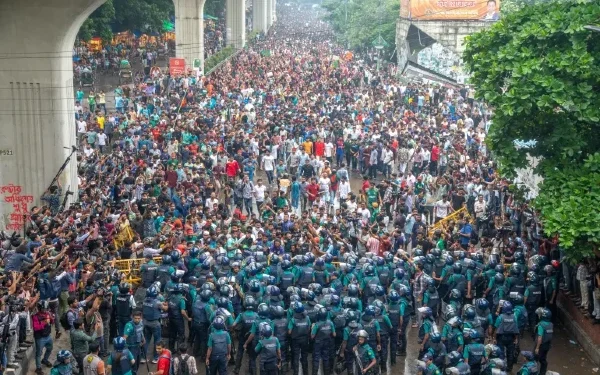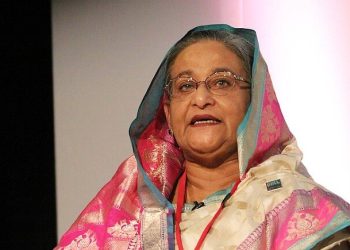The Bangladesh quota problem has ignited widespread protests, drawing attention to the government’s job reservation policies. These protests, led primarily by students and recent graduates, are centered in major cities such as Dhaka, Chittagong, and Rajshahi.
The controversy reveals deep-seated issues of fairness and meritocracy within the country’s public sector.
What is Happening and Where
The Bangladesh quota system reserves a substantial percentage of public sector jobs for women, ethnic minorities, and descendants of freedom fighters from the 1971 Liberation War. The system, aimed at promoting affirmative action, has sparked significant backlash.
Since 2018, the anti-quota movement has gained momentum, with protesters arguing that the policy is unfair and disadvantages meritorious candidates. These protests have primarily erupted in urban centers, disrupting daily life and highlighting the intense dissatisfaction among young job seekers.
Why is This News Important?
The Bangladesh quota problem is crucial because it touches on broader themes of social justice, fairness, and governance. The controversy has led to nationwide debates about the effectiveness and ethics of affirmative action policies.
Moreover, the protests have tested the government’s ability to manage public dissent and address grievances. This situation serves as a litmus test for the government’s responsiveness to public demands and its commitment to equitable governance.
How Are the Protests Affecting People?
The protests have significantly impacted various segments of society. For students and job seekers, the quota system adds stress and uncertainty to their employment prospects.
Clashes between protesters and law enforcement have led to disruptions in daily life, particularly in urban areas.
The violence during protests has resulted in injuries to both protesters and police, further escalating tensions.
The following table provides an overview of the main impacts:
Impact |
Details |
|---|---|
| Stress and Uncertainty | Increased pressure on students and job seekers |
| Disruptions in Daily Life | Frequent clashes causing interruptions in urban centers |
| Violence and Injuries | Numerous injuries among protesters and police during confrontations |
| Social and Economic Effects | Broader socio-economic implications for affected families and communities |
Data to Supplement the Story
To provide a comprehensive understanding, it is essential to include relevant data:
- Job Reservation Percentages: 56% of government jobs are reserved for specific groups.
- Affected Population: Tens of thousands of recent graduates face challenges due to the quota system.
- Unemployment Rate: The youth unemployment rate in Bangladesh stands at approximately 11.6%.
- Protest Scale: Thousands of students have participated in protests across major cities.
- Violence Incidents: Numerous clashes between protesters and police, resulting in over 400 injuries.
Human Interest Angles
Focusing on personal stories can humanize the broader political and social debate. For instance, a recent graduate struggling to secure a job due to the quota system can provide a personal perspective on the issue.
Similarly, a descendant of a freedom fighter who benefits from the quotas can offer insight into the policy’s intended positive impact. These narratives can make the issue more relatable and emphasize its real-world implications.
Who is Being Most Affected by This Situation?
The most affected groups are recent university graduates entering the job market. Those not belonging to the reserved categories feel particularly disadvantaged.
Additionally, the families of these graduates face socio-economic implications due to the uncertainty surrounding employment prospects.
On the other hand, those benefiting from the quotas, such as women, ethnic minorities, and descendants of freedom fighters, may feel targeted and stigmatized by the protests, leading to a sense of vulnerability and insecurity.
To Summarize
The Bangladesh quota problem is a complex and contentious issue that involves themes of fairness, equity, and social justice. As the government grapples with the protests, the situation remains a critical test of its ability to balance affirmative action policies with meritocracy principles.
Understanding the voices of those directly affected by the policy is essential to grasp the full impact of this issue on Bangladeshi society.
Sources: THX News, Bangladesh’s violent quota protests, Quota system of Bangladesh & Bangladesh’s Quota Judgment.






